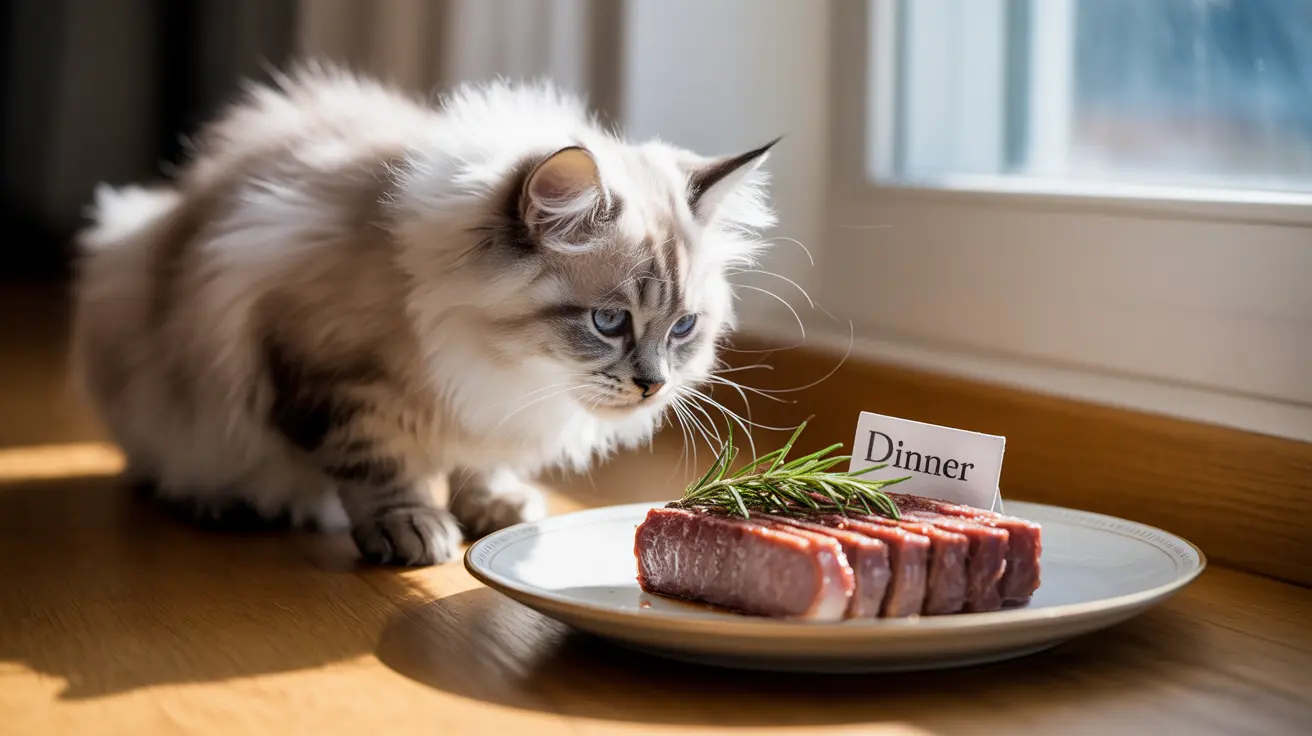Understanding Venison as a Protein Source for Cats
Venison, primarily meat from deer, offers a lean, nutrient-rich protein source for cats. This meat is particularly notable for its high protein content and lower fat levels compared to traditional protein sources like beef or chicken.
The nutritional profile of venison includes essential B vitamins, iron, zinc, and other minerals that contribute to your cat's overall health. When properly prepared and included in a balanced diet, venison can provide valuable nutrients that support your cat's muscular health and energy needs.
Benefits of Venison in Your Cat's Diet
Venison offers several advantages as a protein source for cats:
- High-quality lean protein for muscle maintenance
- Lower fat content compared to many traditional meats
- Rich in essential minerals and vitamins
- Excellent alternative for cats with food sensitivities
- Novel protein option for cats with allergies to common meats
Proper Preparation and Serving Guidelines
When feeding venison to your cat, proper preparation is crucial for safety and nutritional value:
Cooking Requirements
Always thoroughly cook venison before serving it to your cat. Raw venison can harbor harmful bacteria and parasites that pose serious health risks. Cook the meat until it reaches a safe internal temperature, removing any excess fat or seasonings.
Portion Control
When introducing venison to your cat's diet, start with small portions and gradually increase the amount. Venison should not exceed 10% of your cat's daily caloric intake when used as a treat or supplement to their regular diet.
Commercial Venison Cat Food Options
Many pet food manufacturers offer commercial cat foods containing venison, including:
- Complete and balanced dry kibble formulas
- Limited ingredient wet food options
- Specialty formulas for cats with food sensitivities
- Mixed protein recipes featuring venison alongside other meats
When to Consider Venison for Your Cat
Venison can be particularly beneficial in certain situations:
- For cats with diagnosed food allergies to common proteins
- As part of a veterinarian-supervised elimination diet
- When seeking to diversify your cat's protein sources
- For cats requiring a lean protein option for weight management
Frequently Asked Questions
Can cats safely eat venison and how should it be prepared?
Yes, cats can safely eat venison when it's thoroughly cooked and served as part of a balanced diet. Always remove excess fat and avoid seasonings. Never serve raw venison due to potential pathogen risks.
Is venison a good protein choice for cats with food allergies?
Venison can be an excellent choice for cats with food allergies, as it's considered a novel protein. However, always consult with your veterinarian before starting an alternative protein diet for allergies.
Why should raw venison be avoided for cats?
Raw venison may contain harmful bacteria and parasites that can cause serious illness in cats. Cooking eliminates these risks and makes the meat safe for consumption.
How much venison can I feed my cat without upsetting their nutritional balance?
When using venison as a treat or supplement, limit it to no more than 10% of your cat's daily caloric intake. The majority of their diet should come from complete and balanced cat food.
What signs indicate my cat might be allergic to venison?
Signs of a potential venison allergy include itching, skin irritation, gastrointestinal issues like vomiting or diarrhea, and changes in behavior. If you notice these symptoms, discontinue venison and consult your veterinarian.
Conclusion
Venison can be a healthy and beneficial addition to your cat's diet when properly prepared and served in appropriate portions. Whether you're looking for an alternative protein source or addressing food sensitivities, venison offers a nutritious option for many cats. Always consult with your veterinarian before making significant changes to your cat's diet, and monitor their response when introducing any new food.






